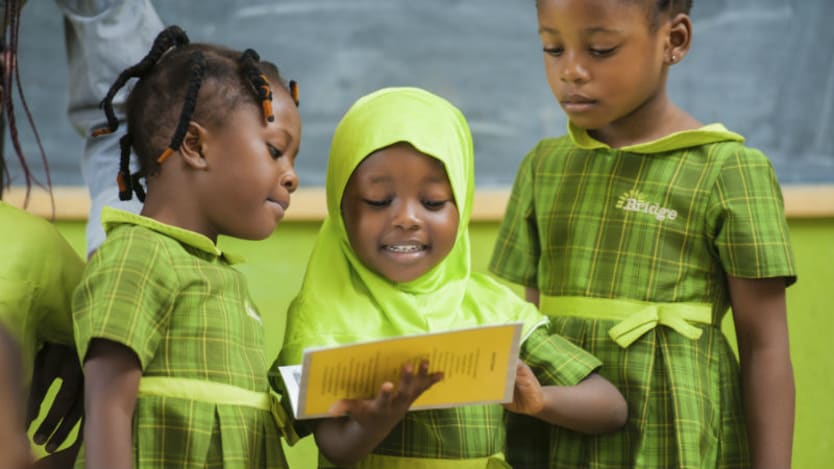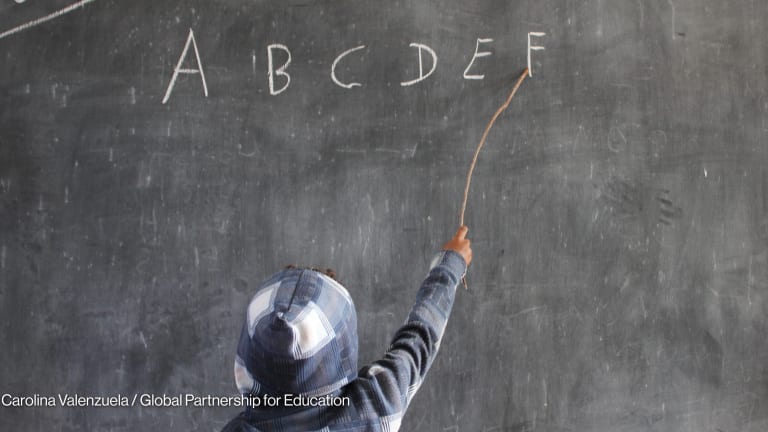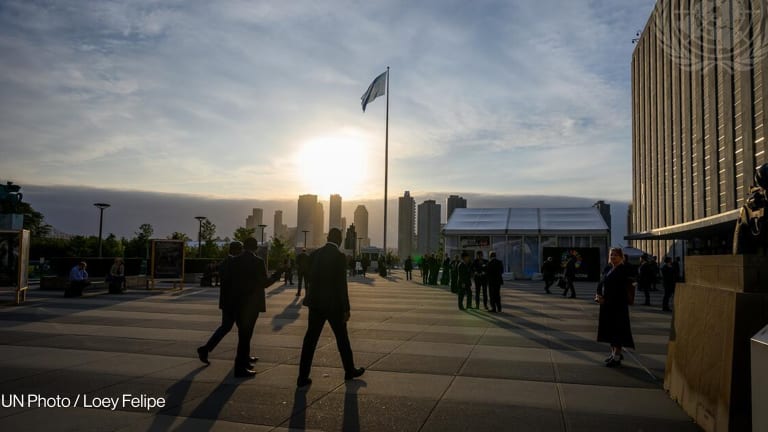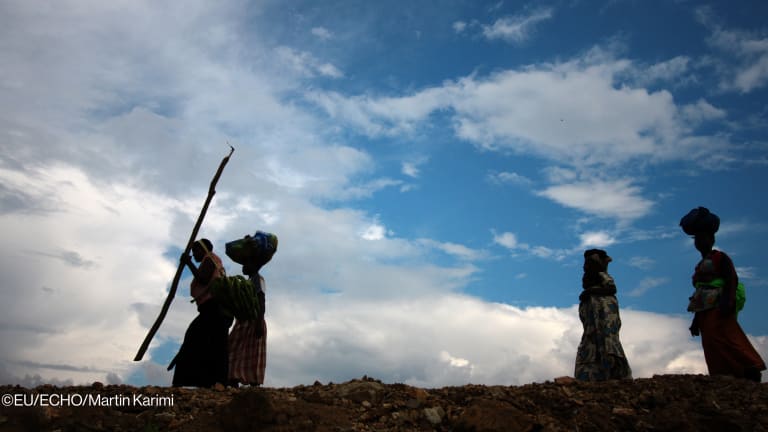
Each year, the United Nations General Assembly meets in New York. Global leaders bang the drum, commit to change, and roll out new policies. Over time, the Sustainable Development Goals replaced the Millennium Development Goals and communal goals, such as reducing poverty, aiding refugees, and improving education outcomes — particularly for girls — gained traction. Yet, in many communities, cultural, economic, or religious context can hamper the goals’ successful pursuit. These barriers damage prosperity and growth in our interconnected world.
Many of the goals are interlinked and progress in one has implications for another. Therefore, it is worrying — both in and of itself and for its causal effects — that the latest U.N. education report reveals the number of girls out of school increased by 6 percent over just one year from 2015-2016. The general public’s impression was that the global community is getting closer to achieving the goals, not falling further behind.
When education inequality doubles, the chances of conflict more than double.
—Amidst the agenda items that will rightly preoccupy UNGA this autumn are likely Yemen, the Rohingya crisis, South Sudan, and, of course, Syria. Underpinning the unrest, bloodshed, and displacement in many conflict zones, is the issue of education — or rather, a lack of it.
More than 600 million children and adolescents are currently being failed either because they are not in school or because they are in schools but not learning. It is challenging. For the 330 million in a “school” who are not learning, it’s absolutely clear that a good school is far more than a just a building. Yet, in many areas, even having a school building is a hurdle to overcome.
In some places, children are not in school because there are none. In states such as Borno, Nigeria, thousands of schools have been destroyed; in large urban slums such as Lagos, Nigeria, or Nairobi, Kenya, there are simply not enough government schools for the population; in areas where refugees are seeking safety, there were often no schools to begin with. In these places, even the creation of enough government schools in their most physical sense is a challenge.
However, it is only by tackling the inadequacy of learning that happens within the walls of classrooms that have been constructed — and those that need to be — that meaningful progress will be made for the 600 million children that need it.
It is only relatively recently that we’ve seen a shift from access to outcomes as the benchmarks of successful intervention. When education inequality doubles, the chances of conflict more than double. Education drives economic growth and enables people to break the cycle of poverty; diminishing the likelihood of conflict and the appeal of radical ideologies and extremist groups. As the late U.N. General-Secretary Kofi Annan said: “Education is the promise of progress, in every society, in every family.”
An urgent coalescence is needed around the importance of the actual provision of quality education to every child — one that prioritizes immediate, measured results that deliver on reducing inequity and increasing children’s learning, rather than getting lost in a debate over parent choice or the tax status of education service organizations.
Given the critical importance to the prosperity of the world of ensuring the delivery of each child’s right to education, we need robust debate on core education policy frameworks. That debate should be evidence-based and recognize the dignity of parents and children as active decision-makers in their education, and future.
It is encouraging that recent research has shown that it is possible, even probable, for educational interventions to have a significant impact over one year, let alone the four to six year terms of most government leaders.
In the first year that our Bridge International Academies students in Kenya sat the KCPE — the primary education certificate — results showed performance differences were most impressive in counties with poverty rates of 30 percent or higher. Eighty-nine percent of Bridge girls outperformed Kenyan boys.
In India, a three-year randomized controlled trial by Educate Girls saw learning levels increase by 79 percent in the final year. This should embolden elected leaders to make significant investments in education programming with proven learning impacts at scale.
Ensuring the delivery of high-quality education to all would dramatically reduce the frequency of humanitarian crises that emerge from the lack of it. Delivery would necessitate the implementation of initiatives focused on transformational systems change, utilizing all committed and proven partners. Such action would also have popular support: In a survey by OnePoll, 75 percent of United States adults surveyed expressed support for education public-private partnerships to help countries struggling with sufficient access to education.
In geography as diverse as Liberia, Nigeria, and India, governments have been courageous enough to acknowledge that many government schools have been failing children. Rather than wringing their hands and doing nothing, they have taken direct action to transform failing systems into powerful systems through public-private partnerships. Education leadership requires strong political leadership.
In enabling system change, we need to ensure that it delivers learning opportunities for all, reversing the increase in girls that are out of school. This means breaking down the barriers that prevent girls from attending and participating equally in the classroom. The consequence of not doing so is social and economic marginalization, and ultimately a reduction in gross domestic product.
Against the odds in many developing countries, girls are aspiring to academic success whether they live in refugee camps, slums, or remote villages. They believe, as does Bridge, that they can achieve anything if they study hard. All they need is a good school, a great teacher, and a chance to learn. Given that chance, they will change the future of their family, their nation, and the prosperity of the world.
Yet, to get that chance we need change. Young girls today in the majority of developing countries need superpowers to overcome current odds set by existing systems. As the U.N. meets once again, we are calling on policymakers to consider what would most effectively impact the entire SDG agenda in the long term, and prioritize children’s learning as a measurable, and achievable goal.
Update, Sept. 25, 2018: This article has been updated to clarify that in a survey by OnePoll, 75 percent of United States adults surveyed expressed support for education public-private partnerships to help countries struggling with sufficient access to education.
NCDs. Climate change. Financing. Read more of Devex's coverage from the 73rd U.N. General Assembly here.








